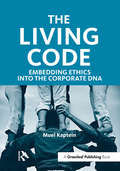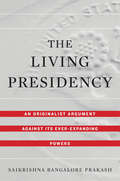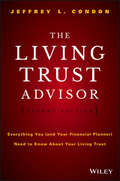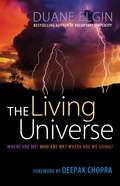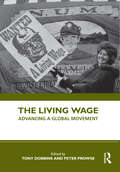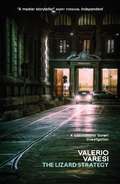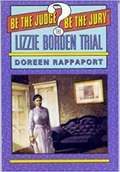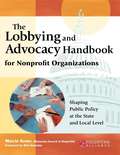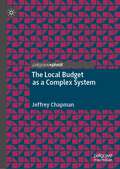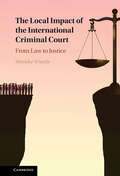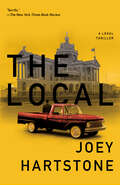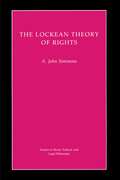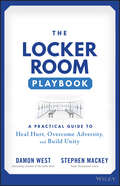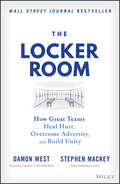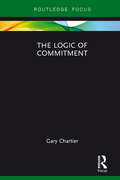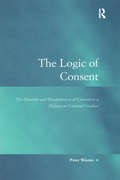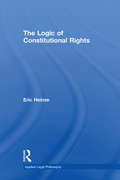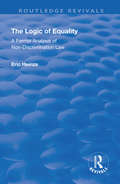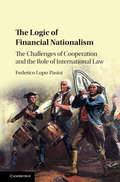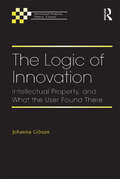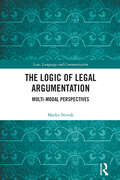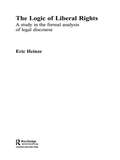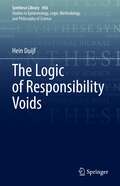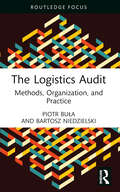- Table View
- List View
The Living Code: Embedding Ethics into the Corporate DNA
by Muel KapteinOf the 200 largest organizations in the world, more than 80% currently have a corporate code of conduct. An ever larger number of smaller organizations also have a code or are in the process of developing one. While in the 1970s and 1980s companies had to explain why they had a code, today they are cross-examined if they don't have one. A company has to have very good arguments to convince stakeholders that they can do without a code.A business code is a measure for success: success as manager, employee, team and for the organization as a whole. Unfortunately, many codes are underutilized. And many simply fail, with serious repercussions for the organization.This short and accessible book presents a model to create, develop and embed business codes. The validated model enables managers and organizations to better manage their codes as well as their performance. The author articulates why a code of conduct is necessary, what it should cover, as well as demonstrating through practical tips and examples how to make full use of it. What is required to breathe life into a code and keep it that way? How can you live your code? Illustrated with results from an empirical study of the "Fortune" Global 200, the ideas developed are based on the worldwide experience of the consultancy firm KPMG. The author works in the field of developing, implementing and monitoring of codes, as well as conducting intensive academic research in the last 15 years in his capacity as (associate) professor of business ethics.The Living Code is a unique book and will be essential reading for those that want to make a success of their code or are considering developing one. Readers will learn just how rich and threatening a code is and what it could mean for their organization, their team and themselves.
The Living Presidency: An Originalist Argument against Its Ever-Expanding Powers
by Saikrishna Bangalore PrakashA constitutional originalist sounds the alarm over the presidency’s ever-expanding powers, ascribing them unexpectedly to the liberal embrace of a living Constitution. Liberal scholars and politicians routinely denounce the imperial presidency—a self-aggrandizing executive that has progressively sidelined Congress. Yet the same people invariably extol the virtues of a living Constitution, whose meaning adapts with the times. Saikrishna Bangalore Prakash argues that these stances are fundamentally incompatible. A constitution prone to informal amendment systematically favors the executive and ensures that there are no enduring constraints on executive power. In this careful study, Prakash contends that an originalist interpretation of the Constitution can rein in the “living presidency” legitimated by the living Constitution. No one who reads the Constitution would conclude that presidents may declare war, legislate by fiat, and make treaties without the Senate. Yet presidents do all these things. They get away with it, Prakash argues, because Congress, the courts, and the public routinely excuse these violations. With the passage of time, these transgressions are treated as informal constitutional amendments. The result is an executive increasingly liberated from the Constitution. The solution is originalism. Though often associated with conservative goals, originalism in Prakash’s argument should appeal to Republicans and Democrats alike, as almost all Americans decry the presidency’s stunning expansion. The Living Presidency proposes a baker’s dozen of reforms, all of which could be enacted if only Congress asserted its lawful authority.
The Living Trust Advisor: Everything You (and Your Financial Planner) Need to Know about Your Living Trust
by Jeffrey L. CondonA comprehensive guide to living trusts, with expert financial and legal guidance The Living Trust Advisor is an expert guide for both advisors and their clients on the complex process of establishing, living with, and maintaining a living trust. Written by renowned family inheritance attorney Jeffrey L. Condon, this book discusses the various aspects of this important document, and shows you how to manage a seamless transfer of assets to various beneficiaries. This new second edition has been fully updated and revised to reflect the extensive changes to the Estate Tax Law that have taken place since the initial publication, giving you the most up-to-date information and guidance on preserving your wealth and helping your heirs avoid estate tax liability. You'll develop a vision for your trust before you ever meet with an attorney or other key players, and learn how to establish and maintain a trust that remains rock-solid for your lifetime and beyond. As the living trust has replaced the will as the primary means of settling after-death estates, clear guidance and current legal information is of utmost importance for advisors and clients alike. This book is a valuable resource for every stage of planning and execution, helping you ensure that you provide for your beneficiaries the way you intend. Know what to think about before your first meeting with a lawyer Establish and manage your living trust to carry out your wishes Identify potential inheritance problems and build solutions into the trust Distribute assets to future generations, and protect them after the transfer Dealing with complex financial and legal issues while facing our own mortality is a difficult task, but making these decisions is critical to the future outcome of your estate. The Living Trust Advisor expertly guides you through the process so you can be confident that your wishes will be carried out.
The Living Universe: Where Are We? Who Are We? Where Are We Going?
by Duane ElginBy the bestselling author of Voluntary Simplicity (over 150,000 sold)• Brings together cutting-edge science and ancient spiritual wisdom to demonstrate that the universe is a living, sentient system and that we are an integral part of it• Explores the power of this new paradigm to move humanity toward a sustainable and promising futureScience has traditionally regarded the universe as mostly made up mostly of inert matter and empty space. At one time this point of view was liberating, part of the Enlightenment-born rationalism that helped humanity free itself from superstition and fear and achieve extraordinary intellectual and technological breakthroughs. But this paradigm has outlived its usefulness. It has led to rampant materialism and environmental degradation—if the universe is essentially dead and we are alive, then the inanimate stuff of the universe should be ours to exploit. But we now know that not only is the view of a dead universe destructive, it is also inaccurate and misleading.In The Living Universe, Duane Elgin brings together evidence from cosmology, biology, physics, and even his participation in NASA-sponsored psychic experiments to show that the universe is permeated by a living field and that we are always in communion with that field of aliveness whether we are conscious of it or not. This is a world-view that, as Elgin explains, is shared by virtually every spiritual tradition, and the implications of it are vast and deep. In a living system, each part is integral to the whole, so each of us is intimately connected to the entire universe. Elgin eloquently demonstrates how our identity manifests itself on a whole series of levels, from subatomic to galactic. We are, he writes, “far more than biological beings—we are beings of cosmic connection and participation.”To confront our ongoing planetary crisis of dwindling resources and escalating conflict, we need to move past an ideology of separation, competition, and exploitation. Duane Elgin asks us to see humanity sharing in the same field of aliveness, to discover how to live sustainably and harmoniously within the living universe.
The Living Wage: Advancing a Global Movement
by Tony DobbinsAs wealth inequality skyrockets and trade union power declines, the living wage movement has become ever more urgent for public policymakers, academics, and – most importantly – those workers whose wages hover close to the breadline. A real living wage in any part of the world is rarely its minimum wage: it is the minimum income needed to cover living costs and participate fully in society. Most governments’ minimum wages are still falling short, meaning millions of workers struggle to cover their living costs. This book brings new, vital insights to the conversation from a carefully selected group of contributors at the forefront of this field. By juxtaposing advances across sectors and countries, and encompassing many different approaches and indeed definitions of the living wage, Dobbins and Prowse offer a rich tapestry of approaches that may inform public policy. By including the experiences and voices of those workers earning at, or near, the living wage alongside the opinions of leading experts in this field, this book is a pioneering contribution for public policymakers as well as students and academics of work and employment relations, public policy, organizational studies, social economics, and politics.
The Lizard Strategy
by Valerio VaresiItaly's Maigret returns in another smouldering noir from a master of the police procedural "A master storyteller" Barry Forshaw, IndependentParma is blanketed in snow, but this pristine, white veneer cannot mask the stench of corruption. Its officials are no longer working for its people - only for themselves - crime is out of control and resentment festers in every district. Commissario Soneri remains at heart an idealist, so the state of Parma wounds him more than most. And now he is presented with three mysteries at once, each more impenetrable than the last. In a river creek on the outskirts of the city, tipped off by a local, he finds a mobile phone that rings through the night but holds no data; an elderly patient with senile dementia is reported missing from a hospice; and the mayor of Parma, who was reported as taking a holiday on the ski slopes, has disappeared off the face of the earth - just when he seemed certain to be implicated in a seismic corruption scandal at city hall.
The Lizzie Borden Trial (Be the Judge? Be the Jury)
by Doreen RappaportReaders step into the jury box and judge the testimony of family, friends, the Borden housekeeper, and medical experts to decide for themselves if Lizzie Borden murdered her father and stepmother.
The Lobbying and Advocacy Handbook for Nonprofit Organizations: Shaping Public Policy at the State and Local Level
by Marcia AvnerThe author provides broad scope of information and road map for nonprofit lobbying at the state and local level.
The Local Budget as a Complex System (Palgrave Studies in Public Debt, Spending, and Revenue)
by Jeffrey ChapmanThis book examines budgeting by analyzing the local government budget as a complex system, thus adding a new dimension to traditional budget textbooks. It is designed to complement existing texts—not replace—by putting the budget in a complex system, general equilibrium framework. A complex systems framework adds to conventional budget analysis in at least four ways: It looks at the budget as the result of many variables that are outside the finance department’s purview; it understands that there are multiple interdependences among these variables; it suggests analysis of non-obvious relationships among actions in the budget process in order to optimize results; and it argues that the actors in the process must understand that their budgetary behaviors have indirect and far-reaching implications that go beyond the budget document. This book also uses concepts seldom discussed in the budgetary literature—that of governance, including concepts of the facilitative state, with adjustments for exogenous shocks; the forms of decision making; and the political climate of the jurisdiction. This framework notes methods of success of firms in the private sector that operate in environments of rapid technological change. While becoming a popular theoretical framework for how private sector firms change, dynamic capability analysis has received little attention in the public management field. This book utilizes DC since public sector organizations also face rapidly changing environments. Lastly, the book discusses the potential relationship between the local budget and local community welfare maximization.
The Local Impact of the International Criminal Court The Local Impact of the International Criminal Court: From Law to Justice
by Marieke WierdaThe International Criminal Court seeks to end impunity for the world's worst crimes, to contribute to their prevention. But what is its impact to date? This book takes an in-depth look at four countries under scrutiny of the ICC: Afghanistan, Colombia, Libya, and Uganda. It puts forward an analytical framework to assess the impact of the ICC on four levels: on the domestic legal systems (systemic effect); on peace negotiations and agreements (transformative effect); on victims (reparative effect); and on the perceptions of affected populations (demonstration effect). It concludes that the ICC is having a normative impact on domestic legal systems and peace agreements, but it has brought little reparative justice for victims, and it does not necessarily correspond with how affected populations view justice priorities. The book concludes that justice for the world's worst crimes has no 'universal formula' that can easily be captured in law by one institution.
The Local: A Legal Thriller
by Joey HartstoneA freewheeling, small-town attorney takes on a national murder trial when an out-of-town client is accused of killing a federal judge in Texas.&“A spectacular courtroom thriller that kept me turning pages like the best of Grisham or Turow." —Michelle King, co-creator of The Good Wife, The Good Fight, and EvilThe town of Marshall, Texas, is the epicenter of intellectual property law in the US—renowned for its speedy trials and massive payouts. One of its best lawyers is James Euchre. His newest client, Amir Zawar, is a CEO forced to defend his life&’s work against a patent infringement claim. But when a beloved hometown hero is murdered, all signs point to Zawar, an outsider with no alibi. With the help of a former federal prosecutor and a local PI, Euchre hopes to uncover the truth. In his first criminal case, the stakes couldn&’t be higher. Euchre fears either an innocent man will be sent to death row, or he&’ll help set a murderer free. The Local is a small-town thriller crackling with courtroom tension right up to the final verdict.
The Lockean Theory of Rights (Studies in Moral, Political, and Legal Philosophy #2)
by A. John SimmonsJohn Locke's political theory has been the subject of many detailed treatments by philosophers and political scientists. But The Lockean Theory of Rights is the first systematic, full-length study of Locke's theory of rights and of its potential for making genuine contributions to contemporary debates about rights and their place in political philosophy. Given that the rights of persons are the central moral concept at work in Locke's and Lockean political philosophy, such a study is long overdue.
The Locker Room Playbook: A Practical Guide to Heal Hurt, Overcome Adversity, and Build Unity
by Damon West Stephen MackeyDiscover how to achieve success together with this hands-on guide to the lessons found in The Locker Room In The Locker Room Playbook: A Practical Guide to Heal Hurt, Overcome Adversity, and Build Unity, bestselling author Damon West and player development coach Stephen Mackey teach you how to apply the principles and concepts found in The Locker Room. You&’ll find lists of core lessons, chapter summaries, detailed lesson breakdowns, discussion questions, exercises, and key takeaways in every chapter. You&’ll also discover: Insightful commentary on key concepts, including respect, loyalty, character, teamwork, prejudice, integrity, and mental health Crucial blueprints for helping athletes, professionals, and students learn how to navigate all aspects of their lives How to rely on your teammates, coaches, colleagues, leaders, and partners to achieve success togetherFilled with must-have team building and coaching resources, this book proves that there&’s always a path teams can take that allows them to work together. The Locker Room Playbook is your roadmap to finding that path and staying on it as you and your team work together to overcome adversity.
The Locker Room: How Great Teams Heal Hurt, Overcome Adversity, and Build Unity
by Damon West Stephen MackeyExplore the power of communication to heal hurt, overcome adversity, and build a unified team In The Locker Room, bestselling author Damon West and player development coach Stephen Mackey team up to explore difficult conversations about eliminating both discrimination and the cancel culture, as well as overcoming adversity. The book tells the story of four characters: two high school football coaches and two players, each of whom must deal with the fallout of an offensive comment that severely disrupts the unity and cohesion of their locker room and threatens to destroy their team. In The Locker Room, you’ll find: A guide to building an inclusive culture The blueprint for using servant leadership and a willingness to listen to break down barriers Encouragement to have the difficult conversations that lie at the heart of modern life Strategies for navigating your personal and professional life in a way that gracefully deals with the realities of prejudice, discrimination, and cancel culture Techniques for giving all people an equal voice and an equal chance at success through learning with humility and teaching with grace An indispensable exploration of some of the most critical and most difficult issues faced by professionals, coaches, athletes, and students today, The Locker Room is a must-read resource that belongs in the libraries of anyone who seeks a life or culture that can not only overcome adversity, but can also use it to reach their goals and improve their communities.
The Logic of Commitment (Routledge Focus on Philosophy)
by Gary ChartierThis book develops and defends a conception of commitment and explores its limits. Gary Chartier shows how commitment serves to resolve conflicts between ordinary moral intuitions and the reality that the basic aspects of human well-being are incommensurable. He outlines a variety of overlapping and mutually reinforcing rationales for making commitments, explores the relationship between commitment and vocation and the relevance of commitment to love, and notes some reasons why it might make sense to disregard one’s commitments. The Logic of Commitment will appeal to ethicists interested in the connection between commitment and personal well-being, and to anyone who wonders why and when it might make sense to make or keep commitments.
The Logic of Consent: The Diversity and Deceptiveness of Consent as a Defense to Criminal Conduct (Law, Justice and Power)
by Peter WestenThe Logic of Consent analyzes the varied nature of consent arguments in criminal law and examines the confusions that commonly arise from the failure of legislatures, courts and commentators to understand them. Peter Westen skillfully argues that the conceptual aspect accounts for a significant number of the difficulties that legislatures, courts and scholars have with consent in criminal cases; he observes that consent masquerades as a single kind of event when, in reality, it refers to diverse and sometimes mutually exclusive kinds of events. Specifically, consent is used in law to refer to three pairs of contrasting kinds of events: factual versus legal, attitudinal versus expressive, and prescriptive versus imputed. While Westen takes no position on whether the substance of existing defenses of consent in criminal law ought to be enlarged or reduced in scope, he examines each of these contrasting events and analyzes the normative confusions they produce.
The Logic of Constitutional Rights (Applied Legal Philosophy)
by Eric HeinzeIndividual rights raise endless conflicts and spawn intricate standards and policies. Increasing involvement by courts has added still greater complexity. It would seem that few meaningful principles can unite an area of law plagued by such uncertainty. In this book the author argues that a fixed structure underlies that complexity, determining the kinds of arguments that can be made about individual rights. Examples are drawn from the world's oldest and most intricate body of law on civil rights and liberties: the case law of the United States Supreme Court. Yet the model is designed to account for any legal system that recognizes civil rights and liberties. The author applies techniques of logical analysis (although no prior knowledge of logic is required) to identify a deeper discursive structure. He shows how simple concepts of harm and consent, which do not ordinarily appear to be relevant in all cases, provide unity within and across regimes of individual rights.
The Logic of Equality: A Formal Analysis of Non-Discrimination Law (Routledge Revivals Ser.)
by Eric HeinzeThis title was first published in 2003. The Logic of Equality proposes a formal-logical method for examining the indeterminacy of legal discourse, using the example of the non-discrimination norm. It shows that the indeterminacy of a legal concept does not mean that it is completely chaotic - the indeterminacy of the non-discrimination norm arises out of, and presupposes, a determinate formal structure, which remains fixed and constant both within and across jurisdictions, regardless of institutional or doctrinal differences. To illustrate the argument, cases are presented from a variety of jurisdictions including the United States Supreme Court, the European Court of Human Rights, the European Court of Justice, and the German Constitutional Court. The book is aimed at theorists who are interested in the analysis of legal discourse, including comparative legal scholars and those who specialise in human rights and/or discrimination law.
The Logic of Financial Nationalism: The Challenges of Cooperation and the Role of International Law
by Federico Lupo-PasiniUsing case studies ranging from cross-border bank resolution to sovereign debt, the author analyzes the role of international law in protecting financial sovereignty, and the risks for the global financial system posed by the lack of international cooperation. Despite the post-crisis reforms, the global financial system is still mainly based on a logic of financial nationalism. International financial law plays a major role in this regard as it still focuses more on the protection of national interests rather than the promotion of global objectives. This is an inefficient approach because it encourages bad domestic governance and reduces capital mobility. In this analysis, Lupo-Pasini discusses some of the alternatives (such as the European Banking Union, Regulatory Passports, and international financial courts), and offers a new vision for the role of international law in maintaining and fostering global financial stability. In doing so, he fills a void in the law and economics literature, and puts forward a solution to tackle the problems of international cooperation in finance based on the use of international law.
The Logic of Innovation: Intellectual Property, and What the User Found There (Intellectual Property, Theory, Culture)
by Johanna GibsonThe Logic of Innovation examines not merely the supposed problem of the efficacy and relevance of intellectual property, and the nature of innovation and creativity in a digital environment, but also the very circumstances of that inquiry itself. Social life has itself become a sphere of production, but how might that be understood within the cultural and structural transformation of creativity, innovation and property? Through a highly original interlocutory and therapeutic approach to the issues in play, the author addresses the concepts of innovation and the digital by means of an investigation through literature and the imagination of new scenarios for language, business and legal reform. The book undertakes a complex inquiry into innovation and property through the wonder of Alice’s journeys in Wonderland and through the Looking-glass. The author presents a new theory of familiar production to account for the kinship that has emerged in both informal and commercial modes of innovation, and foregrounds the value of use as crucial to the articulation of intellectual property within contemporary models of production and commercialization in the digital.
The Logic of Law Making in Islam
by Behnam SadeghiThis pioneering study examines the process of reasoning in Islamic law. Some of the key questions addressed here include whether sacred law operates differently from secular law, why laws change or stay the same and how different cultural and historical settings impact the development of legal rulings. In order to explore these questions, the author examines the decisions of thirty jurists from the largest legal tradition in Islam: the Hanafi school of law. He traces their rulings on the question of women and communal prayer across a very broad period of time – from the eighth to the eighteenth century – to demonstrate how jurists interpreted the law and reconciled their decisions with the scripture and the sayings of the Prophet. The result is a fascinating overview of how Islamic law has evolved and the thinking behind individual rulings.
The Logic of Legal Argumentation: Multi-Modal Perspectives (Law, Language and Communication)
by Marko NovakMulti-modal argumentation with its logical, emotional, visceral and kisceral arguments is an important addition to logical argumentation, especially when real-life situations are considered. It does not discard logic but adds other modes of argumentation to complement it, to emphasize the realistic environments of communication. In this sense, the multi-modal theory is important for the area of legal argumentation, where even in the reasoning of judicial decisions traces of a flesh-and-blood personality, who decided the case and wrote the reasons, can be found. This book presents a comprehensive analysis of this informal logic in legal argumentation and its practicality within the law. It argues that by building on the dialectical and rhetorical models of legal argument, the former being important for clear cases while the latter for unclear ones, the multi-modal theory of legal argumentation brings together logic and psychology in a holistic or integral perspective. The approach is not only descriptive, identifying the traces of alternate arguments in judicial decisions, but is also normative, presenting the criteria for evaluation that multi-modal arguments need to face to attain validity in the legal context. The work will be of interest to academics and researchers in the areas of Legal Theory, Legal Linguistics, Philosophy of Law, and Communication Studies.
The Logic of Liberal Rights: A Study in the Formal Analysis of Legal Discourse (Routledge Studies in Twentieth-Century Philosophy #No.14)
by Eric HeinzeThe Logic of Liberal Rights uses basic logic to develop a model of argument presupposed in all disputes about civil rights and liberties. No prior training in logic is required, as each step is explained. This analysis does not merely apply general logic to legal arguments but is also specifically tailored to the issues of civil rights and liberties. It shows that all arguments about civil rights and liberties presuppose one fixed structure and that there can be no original argument in rights disputes, except within the confines of that structure. Concepts arising in disputes about rights, like 'liberal' or 'democratic', are not mere abstractions but have a fixed and precise character.This book integrates themes in legal theory, political science and moral philosophy, as well as the philosophy of logic and language. For the advanced scholar, the book provides a model presupposed by leading theoretical schools (liberal and critical, positivist and naturalist). For the student it provides a systematic theory of civil rights and liberties. Examples are drawn from the European Convention in Human Rights but no special knowledge of the Convention is assumed, as the issues analysed arise throughout the world. Such issues include problems of free speech, religious freedom, privacy, torture, unlawful detention and private property.
The Logic of Responsibility Voids (Synthese Library #456)
by Hein DuijfThis book focuses on the problem of responsibility voids: these are cases where responsibility for a morally undesirable outcome cannot be attributed to any of the involved agents. Responsibility voids are thought to occur in collective decision-making and in the context of artificial intelligent systems. In these cases, philosophers worry that there is a shortfall of moral responsibility. In particular, such voids are often assumed to justify a notion of collective responsibility that cannot be reduced to individual responsibility. One of the aims of the book is to study how collective responsibility and joint action relate to individual responsibility and individual actions. The book offers a unifying framework for modelling moral responsibility by drawing from modal logic and game theory.The book investigates the possibility and scope of the problem of responsibility voids. One of its characteristics is its pluralistic perspective on moral responsibility: in contrast to giving a unique and all-encompassing definition of it, the book makes progress by spelling out and modelling several conceptions of moral responsibility. One of the appealing features of the book is that a relatively small range of models is used to investigate a variety of conceptions of moral responsibility. The unifying framework can thus be used to characterize the conditions under which responsibility voids are ruled out.
The Logistics Audit: Methods, Organization, and Practice (Routledge Focus on Business and Management)
by Piotr Buła Bartosz NiedzielskiExtraordinary technological progress, but also the experience gained from the global COVID-19 pandemic, force the future vision of the world’s economic development to assume a close coexistence and intense interaction between production (manufacturing) and logistics and supply-chain management. This perspective requires that the current functioning of organizations will have to be radically remodeled so that they can face not only market competition but also the turbulent changes (volatility, uncertainty, complexity, and ambiguity - VUCA) that take place in their close environment. Therefore, in the next few years, one of the most important tools for improving organizations may become industry audits, especially the logistics audit. This book explores the development, methods, and impact of logistics audits on organizations. In a holistic way, the book refers to topics such as internal audit, control, logistics system of enterprises, principles of conducting logistics audit and its problem areas (risk), logistics audit of procurement, production, warehousing, distribution, and supply chains, impact of the digital economy on organizations, and the European market for logistics audit services. Undoubtedly, the greatest asset of this book is that, in international terms, it is the first compact book devoted to the issue of logistics audit. Unique and timely, the book will be an essential resource for academics and postgraduate students of logistics, supply-chain management, and global operations in particular.
